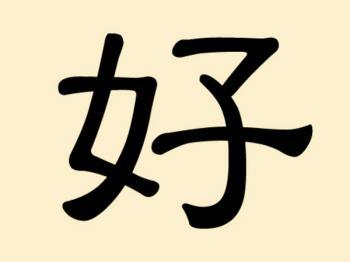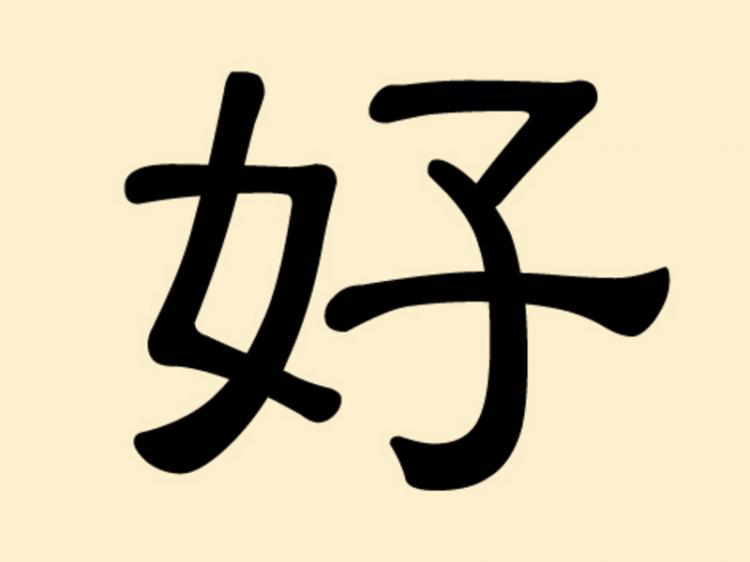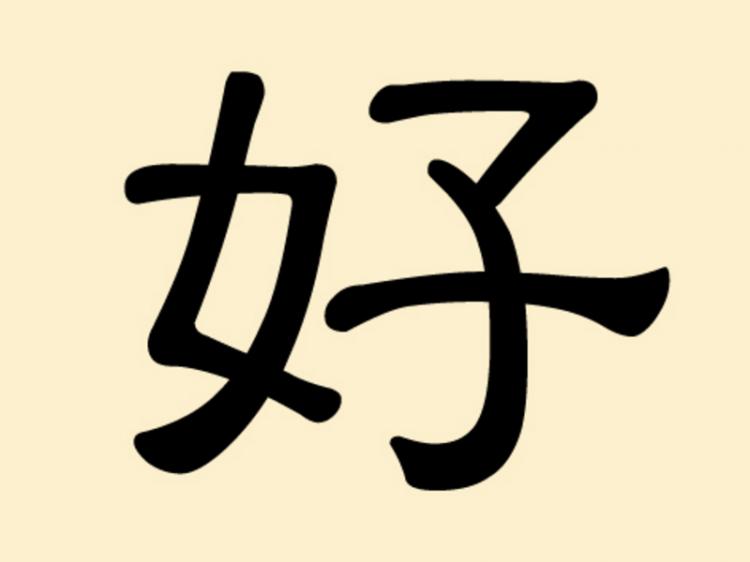If something is good, the Chinese describe it as 好 (hăo). For example, in China people greet each other with 你好嗎 (nĭhăo ma?) “Are you doing well?” One possible answer could be 我很好 (wŏ hĕnhăo) “I am doing (very) well.”
According to a principal work on Chinese characters 說文解字 (shūowénjĭezì) “Explaining Simple and Analyzing Compound Characters”, the character 好 consists of 女 (nǚ) daughter and子 (zĭ) son. Why the appearance of daughters and sons means good or beautiful can be explained with the aid of the Chinese culture.
Parents love their children, because in ancient China they considered children their creations. They therefore loved them, regardless of whether the child was dutiful or rebellious, diligent or lazy, beautiful or ugly. Parents find their children unconditionally good and beautiful; they also think that their children are kindhearted the minute they are born.
Another explanation implies that a family is good because they have sons and daughters, because the children embody the continued existence and happiness of a family. Since time immemorial the Chinese put much emphasis on the value of a family and kin, which is reflected in traditional practices of ancestor worship.
Due to this belief in the family it is easily understandable why the one-child-policy since 1975 met with disapproval. Many Chinese, especially those in rural regions, find this a burden. In a family in which either only 女 or 子 can be encountered, some think their lives can no longer be 好, or “good”.







